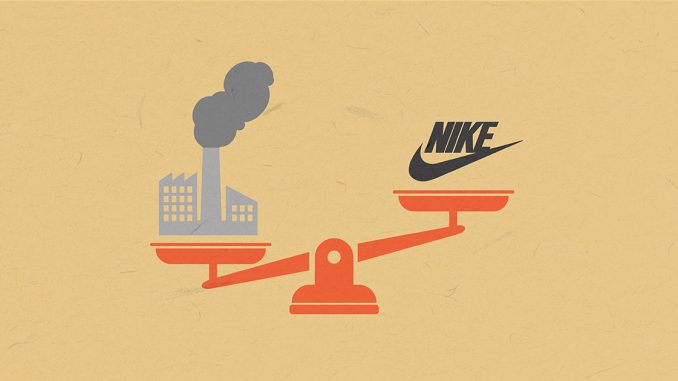

The recent Nike “Just Do It” campaign featuring former NFL quarterback Colin Kaepernick quickly became a national controversy.
The advertisement features a close-up shot of the athlete’s face with the words, “Believe in something. Even if it means sacrificing everything.” A full commercial was released two days after the announcement that Kaepernick would be the new face of the campaign.
During August 2016, Kaepernick protested systematic racism and police brutality by sitting during the national anthem. He began to kneel during the anthem in fall 2017, and many other professional athletes joined in on the protest.
And despite some people burning their Nike gear or boycotting the brand because they disagree with Kaepernick’s political statement, Nike’s online sales increased 31 percent in a three-day period after the debut of the advertisement, according to Edison Trends.
Many have protested the political nature of the ad, while others have praised Nike for drawing attention to Kaepernick’s message. It is clear the American multinational corporation is trying to position itself as a progressive and socially aware company that promotes equality. But it’s important for us to consider Nike’s intent. Its motivation was monetary, not ethical or humanitarian. It’s difficult to view Nike as a proponent of equal rights when it continues to profit from global economic inequality and has historically mistreated workers.
Sandra Suarez, a Temple University political science professor, said we should remember that Nike is inherently a for-profit company.
“At the end of the day, a company that has shareholders has to be profitable,” Suarez said. “They’re not going to make a move that they think is going to hurt the sales of their product because they have to look after the interests of their shareholders.”
Juris Milestone, an anthropology professor, said we can’t expect this to be an ethical decision from “an organization that exists to sell sneakers.”
It is difficult to view Nike as a moral actor because its first and foremost concern is, and has always been, making money. But the extent of Nike’s actual progressiveness raises even more questioning.
Though this ad makes it seem like the company promotes human rights-related causes, Nike has a history of mistreating workers worldwide.
In 2017, the Guardian reported employees in Nike-supplying factories in Cambodia suffered “mass faintings,” as a result of their working conditions. Long work days and a lack of air conditioning threatened their health.
Last May, Good On You, a fashion app that monitors the business practices of companies, stated that working conditions at Nike are “not good enough.”
Nike was assigned a “C” rating in the 2017 Ethical Fashion Report, which showed “no improvements over the 2016 ranking.”
The Clean Clothes Campaign, an international organization that works to improve labor conditions in clothing manufacturing, released a “Foul Play” report in June, noting an increase in soccer sponsorships — but no concurrent rise in pay for low-wage workers.
The dissonance between Nike’s outward media presentation and its treatment of employees certainly detracts from the political power of the advertisement.
Nike’s history of exploitation should affect the message of the commercial on consumers, Milestone said.
“If a company is exploiting cheap labor, that should be considered,” Milestone said. “It’s hypocritical of them if they’re exploiting cheap labor and advertising equality.”
It is still possible for the ad to have positive effects and contribute to civil discourse. But when companies present themselves as progressive, they must be held accountable.


Be the first to comment